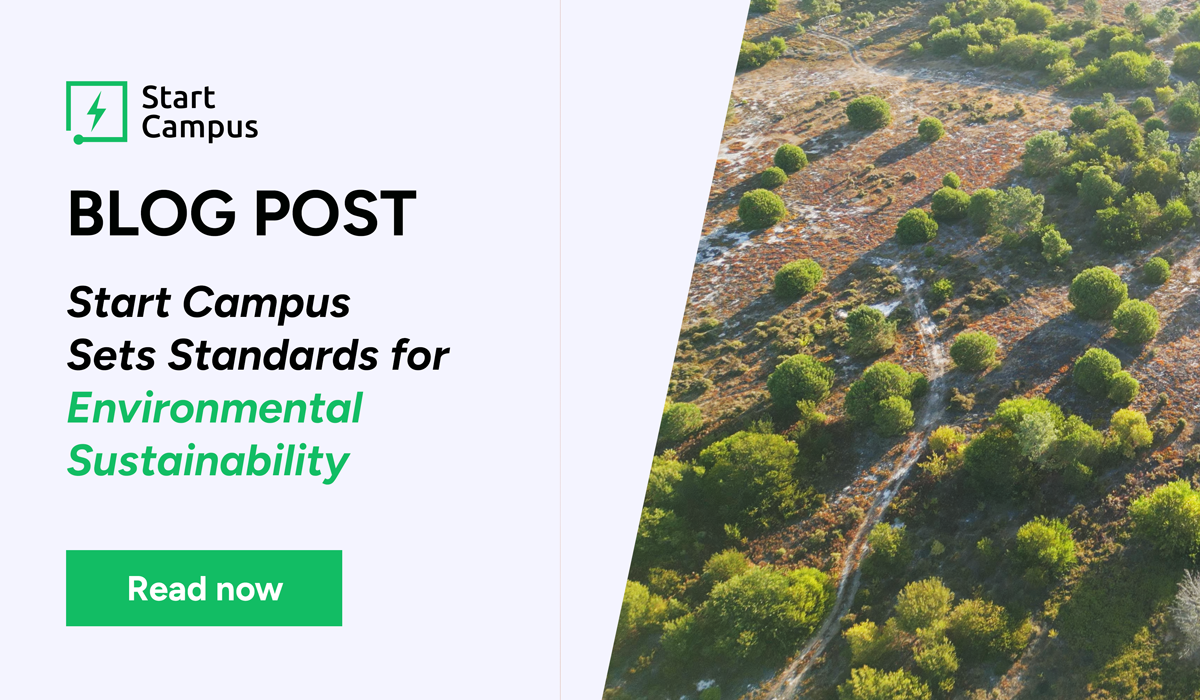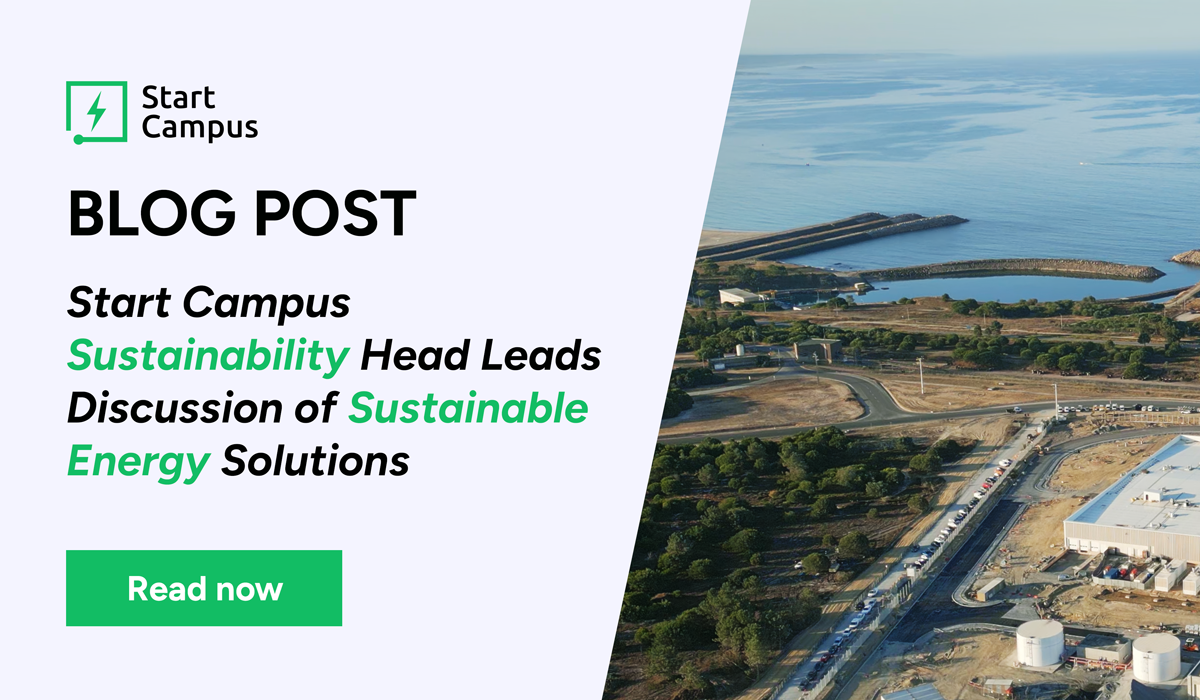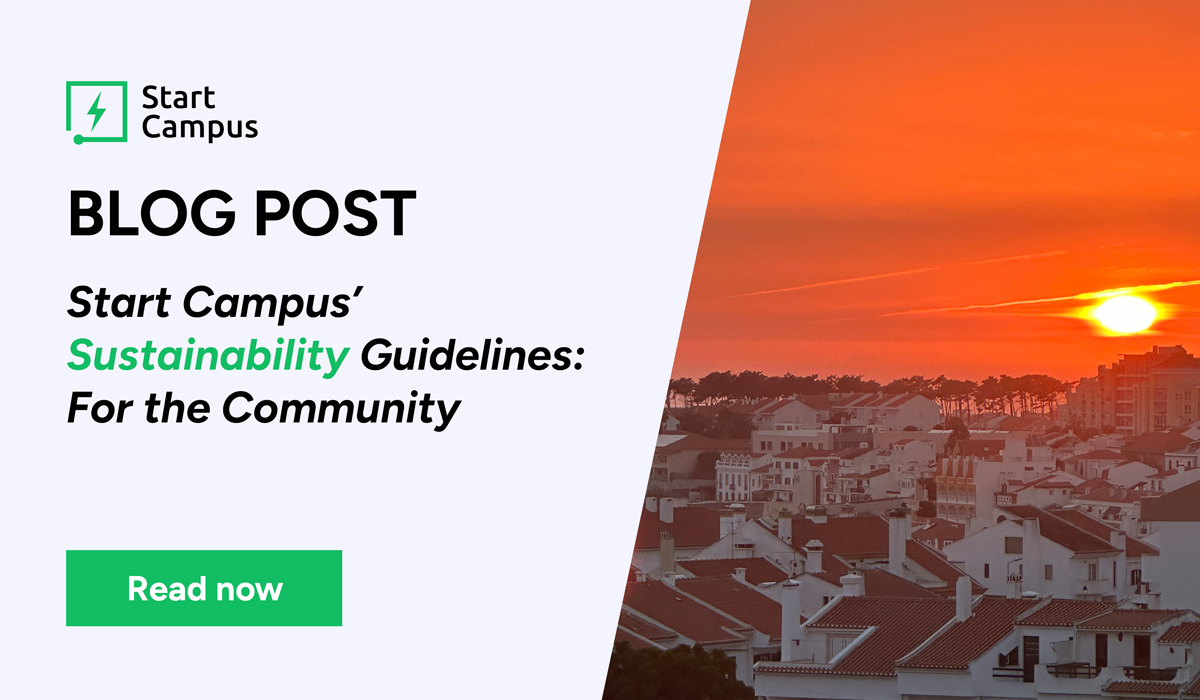Start Campus Sets Standards for Environmental Sustainability
Investment in data centers has grown exponentially since 2013. Despite the increased investment, demand and data consumption are outweighing the...
Welcome to the fourth article in our blog series highlighting Start Campus’s sustainability best practices. To get caught up on the entire series, you can read the first blog article “For the Planet,” part two “For the Community,” and part three “For the Company.”
At Start Campus, we foster a collaborative ecosystem to help drive a holistic approach to environmental sustainability company-wide and on a global scale. This blog article outlines what Start Campus is putting in place to set industry-wide sustainability standards.
![]() Start Campus’s is pioneering sustainability initiatives to impact the entire data center industry and supply chain, driving the utilization of eco-friendly construction materials. By leading the way with their sustainability-driven approach, Start Campus inspires others in the industry to follow suit. Their innovative practices and commitment to environmental responsibility serve as a catalyst for change, motivating stakeholders to adopt greener alternatives and reshape industry standards.
Start Campus’s is pioneering sustainability initiatives to impact the entire data center industry and supply chain, driving the utilization of eco-friendly construction materials. By leading the way with their sustainability-driven approach, Start Campus inspires others in the industry to follow suit. Their innovative practices and commitment to environmental responsibility serve as a catalyst for change, motivating stakeholders to adopt greener alternatives and reshape industry standards.
To support our activities, we monitor and measure progress by achieving our sustainability development goals. We embed sustainability into the corporate goals and targets. We strive to be pioneers in developing and — more specifically — sharing our highly-detailed and 100% transparent Carbon Modelling System using BIMMS Software with the wider industry. We aim to set an example for all future companies to adopt the most sustainable and ethically driven deliverables.
By implementing our sustainable procurement policy and environment policy, Start Campus can influence the supply chain sustainability and push the global industry to innovate, build and deliver green solutions. We have developed and measured specific departmental action plans that define roles, responsibilities, and timescales for activities.
To achieve company wide as well as global sustainability targets, we follow successful models of well-structured guidelines.
The GRI Standards are the most widely used sustainability reporting standards in the world. They provide a framework for companies to report on their economic, environmental, and social impacts, in addition to performance. The GRI Standards are designed to be flexible and allow companies to tailor their reporting to their specific needs and context.
The International Organization for Standardization (ISO) 26000 is a guidance standard on social responsibility. It provides guidance on how companies can operate in a socially responsible manner, and it covers a wide range of topics, including human rights, labor practices, the environment, and governance.
Finally, Start Campus follows the Sustainability Accounting Standards Board (SASB) Standards. These provide a framework for companies to report on their sustainability performance in a way that is financially transparent. The SASB Standards focus on financial performance and the material sustainability issues that are most likely to impact a company’s financial performance.
Start Campus is unwavering in its commitment to sustainability, making it an integral part of our corporate identity. This framework enables us to measure and report on our economic, environmental, and social impacts, and guide our decision-making towards a sustainable future.
We invite you to join us on this transformative journey towards a more sustainable and responsible world. Together, we can make a meaningful difference. For more information about Start Campus, visit Sustainability for the Industry.

Investment in data centers has grown exponentially since 2013. Despite the increased investment, demand and data consumption are outweighing the...

Start Campus’s Head of Sustainability and Marketing Fabiola Bordino was featured on an episode of the DCD>Inside Portugal podcast on May 16, 2023. On...

Welcome to part two of four in our blog series highlighting our sustainable best practices. If you missed the first one “For the Planet,” you can...